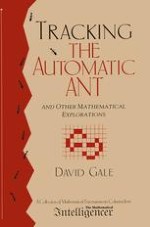1998 | OriginalPaper | Buchkapitel
Probability Paradoxes
verfasst von : David Gale
Erschienen in: Tracking the Automatic ANT
Verlag: Springer New York
Enthalten in: Professional Book Archive
Aktivieren Sie unsere intelligente Suche, um passende Fachinhalte oder Patente zu finden.
Wählen Sie Textabschnitte aus um mit Künstlicher Intelligenz passenden Patente zu finden. powered by
Markieren Sie Textabschnitte, um KI-gestützt weitere passende Inhalte zu finden. powered by
What is a paradox? Perhaps the best-known examples in mathematics are Russell’s paradox and the Banach-Tarski paradox, but these two results are very different. The Banach-Tarski theorem is considered paradoxical because it shows that sets can behave in a way very different from our intuitive notions about them. Russell’s paradox, on the other hand, shows that starting from what seem to be plausible axioms, one can arrive at a contradiction. The proper term for this is not paradox but antinomy, which, according to Webster, is “a contradiction between two apparently equally valid principles or between inferences correctly drawn from such principles,” whereas a paradox is “a statement that is seemingly contradictory or opposed to common sense and yet is perhaps true.”
